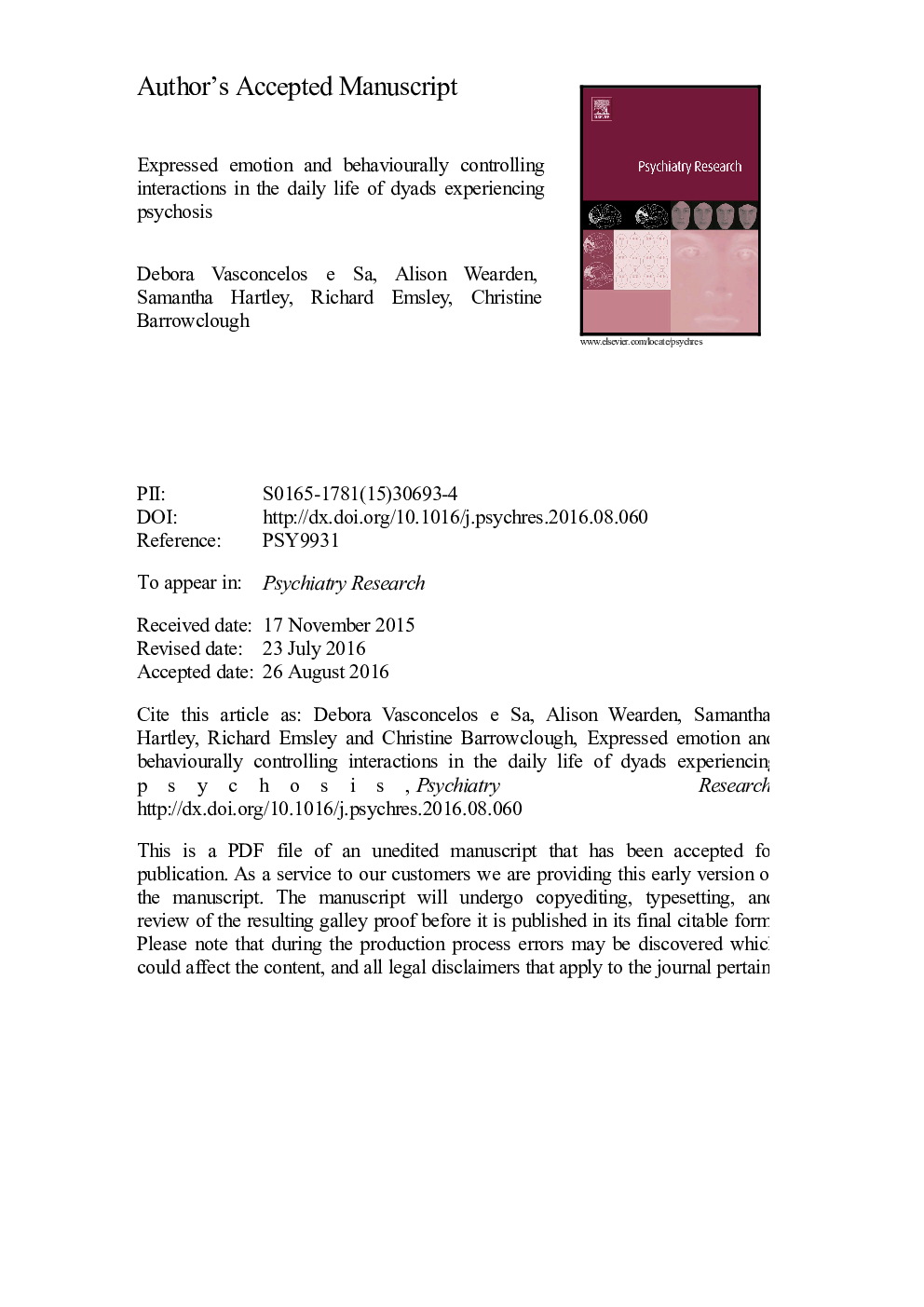| کد مقاله | کد نشریه | سال انتشار | مقاله انگلیسی | نسخه تمام متن |
|---|---|---|---|---|
| 6812495 | 1433801 | 2016 | 35 صفحه PDF | دانلود رایگان |
عنوان انگلیسی مقاله ISI
Expressed Emotion and behaviourally controlling interactions in the daily life of dyads experiencing psychosis
ترجمه فارسی عنوان
احساسی بیان شده و به طور رفتارانه کنترل تعاملات در زندگی روزمره دیودهای روانپزشکی را کنترل می کند
دانلود مقاله + سفارش ترجمه
دانلود مقاله ISI انگلیسی
رایگان برای ایرانیان
کلمات کلیدی
موضوعات مرتبط
علوم زیستی و بیوفناوری
علم عصب شناسی
روانپزشکی بیولوژیکی
چکیده انگلیسی
While research using Experience Sampling Methodology (ESM) suggests that, in general, contact with relatives or friends may be protective for psychotic experiences, contact with high-Expressed Emotion (high-EE) relatives can have adverse consequences for patients. This study investigated whether contact with high-EE relatives, and relatives' behaviourally controlling interactions (BCI) are related to patients' symptoms and to both patients' and relatives' affect when measured using structured diary assessments in the course of everyday life. Twenty-one patients experiencing psychosis and their closest relatives provided synchronized self-reports of symptoms (patients only), affect, dyadic contact and BCI over a 6-days period. Relatives' EE was obtained from Camberwell Family Interviews. Multi-level modeling showed that patients' reports of relatives taking control of them and helping them were associated with increased patient negative affect and symptoms. Relatives' self-reports of nagging, taking control and keeping an eye on the patient were related to fluctuations in relatives' affect. No evidence was found for the moderating effect of EE status on the association between dyadic contact and affect or, in the case of patients, symptoms. When measured using an ecologically valid methodology, momentary behaviourally controlling interactions within dyads experiencing psychosis can impact on patients' affect and symptoms.
ناشر
Database: Elsevier - ScienceDirect (ساینس دایرکت)
Journal: Psychiatry Research - Volume 245, 30 November 2016, Pages 406-413
Journal: Psychiatry Research - Volume 245, 30 November 2016, Pages 406-413
نویسندگان
Debora Vasconcelos e Sa, Alison Wearden, Samantha Hartley, Richard Emsley, Christine Barrowclough,
